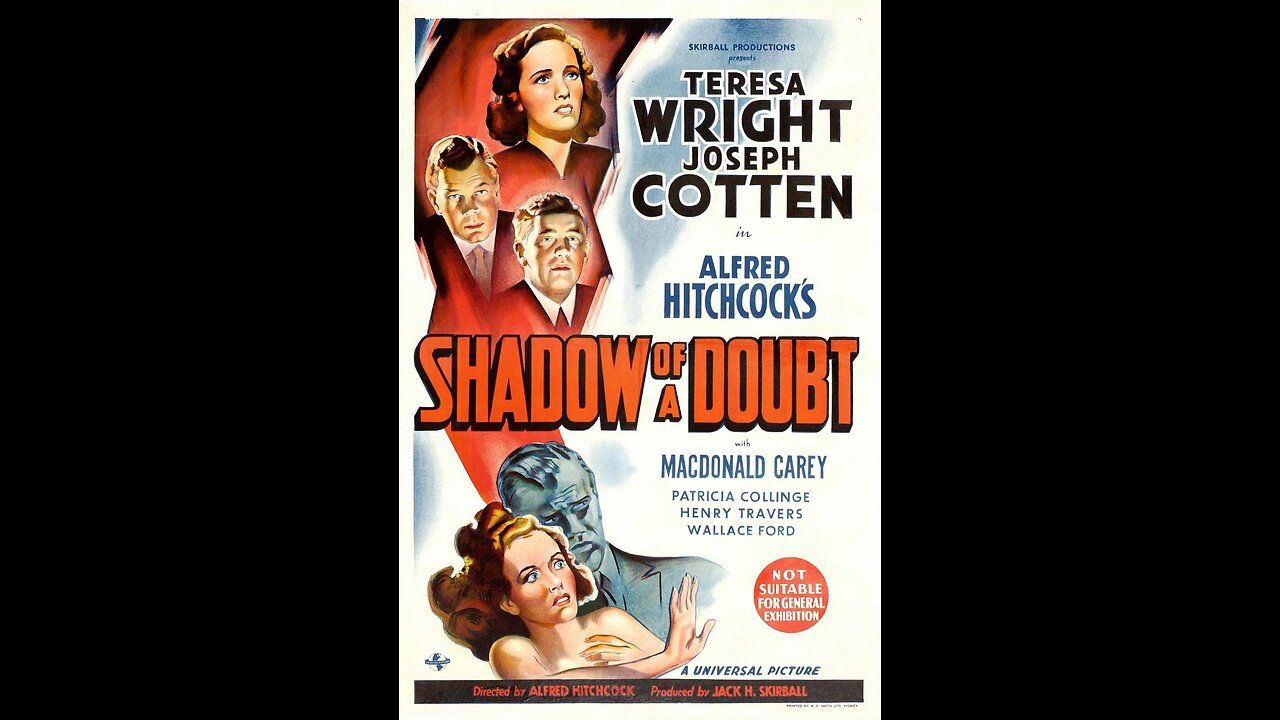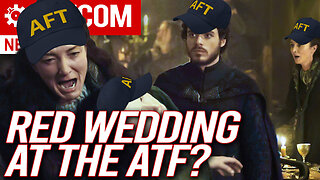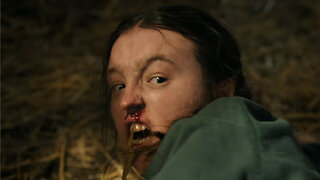Premium Only Content

Shadow of a Doubt (1943) | Directed by Alfred Hitchcock
"Shadow of a Doubt," released in 1943 and directed by Alfred Hitchcock, stands as a pivotal work in the thriller genre, often cited by Hitchcock himself as one of his personal favorites. This film, imbued with suspense and psychological depth, explores the invasion of evil into the American suburban idyll, a theme that resonates with audiences even today.
Set in the tranquil town of Santa Rosa, California, the film centers on young Charlie Newton (played by Teresa Wright), who is named after her beloved uncle, Charlie Oakley (played by Joseph Cotten). Uncle Charlie's unexpected visit to the Newton household brings a wave of excitement to the mundane lives of the family members. However, this excitement turns to suspicion and fear as evidence mounts that Uncle Charlie may be the notorious "Merry Widow Murderer," a serial killer sought by the police. The film masterfully builds tension as young Charlie confronts the horrifying possibility that her cherished uncle is a predator hiding in plain sight, challenging her perceptions of family and morality.
"Shadow of a Doubt" is celebrated for its adept blending of the ordinary with the extraordinary, creating a chilling narrative that delves into the darkness lurking beneath the facade of small-town Americana. Joseph Cotten delivers a compelling performance, masterfully portraying the charming yet sinister Uncle Charlie, a character that remains one of the most memorable villains in Hitchcock's oeuvre. Teresa Wright excels as young Charlie, capturing the essence of innocence faced with harsh reality, her portrayal nuanced and emotionally resonant.
Hitchcock's direction is exemplary, utilizing his signature techniques of suspense and tension to draw the audience into the psychological turmoil of his characters. The film's pacing, camerawork, and use of light and shadow contribute to an atmosphere brimming with suspense and foreboding. The narrative, co-scripted by Thornton Wilder, Sally Benson, and Alma Reville (Hitchcock's wife), is tight and effective, weaving a tale of moral ambiguity and psychological depth.
Despite its acclaim, "Shadow of a Doubt" is not without its criticisms. Modern audiences might find some of the film's pacing and stylistic choices dated, as the slow burn approach to storytelling and subtler forms of suspense might not align with contemporary tastes, which often favor faster-paced, more explicit thrillers. Additionally, some plot elements may seem implausible or overly convenient by today's standards, reflecting the different storytelling conventions of the era in which it was made.
Furthermore, the film's portrayal of gender roles and family dynamics, reflective of the 1940s, might appear antiquated to modern viewers, potentially affecting its relatability and the impact of its psychological themes.
-
 1:01:07
1:01:07
Classic Films & Movies Archive
1 day agoPhantom of Chinatown (1940) | Directed by Phil Rosen
1001 -
 LIVE
LIVE
Game On!
15 hours agoHappy NFL Draft Day!
10,029 watching -
 LIVE
LIVE
BEK TV
15 hours agoTrent Loos in the Morning 4/24/2025
6,376 watching -
 19:39
19:39
Clownfish TV
1 day agoRIP The Last of Us...
9.2K15 -
 11:03
11:03
WhaddoYouMeme
15 hours ago $2.62 earnedFamous Pastor Dies in an “Accident”—But Was It?
10.3K8 -
 12:20
12:20
The Official Steve Harvey
16 hours ago $1.92 earnedStephen A. Smith Gets Real About Haters – Steve Harvey Reacts
11.4K16 -
 9:14
9:14
ARFCOM News
17 hours ago $1.55 earnedDEA Merging W/ ATF?!? | ATF Raids 3D2A Enjoyers | DoJ To Sue DC?
14K9 -
 13:27
13:27
IsaacButterfield
1 day ago $1.73 earnedVEGAN BOOTY “RACIST”
14.8K45 -
 16:31
16:31
RealReaper
11 hours ago $1.05 earnedThe Last of Us S02E01 Weak Men and Annoying Girlbosses
15.7K15 -
 18:10
18:10
Degenerate Jay
12 hours ago $0.76 earnedIs This Ruining Assassin's Creed? - The Brand Loyalty Problem
17K